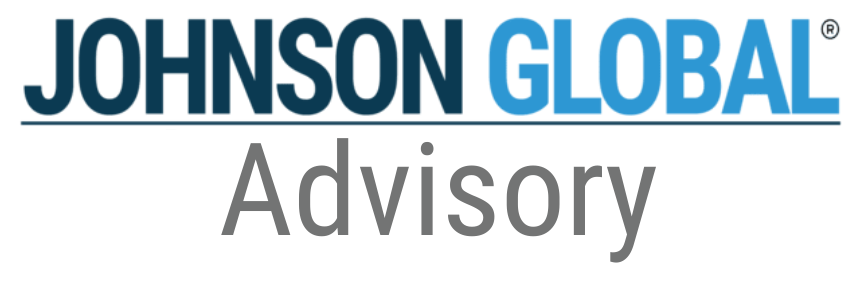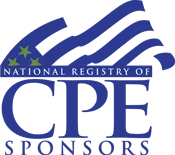The Rise of ESG Reporting: What is the Auditor’s Role?
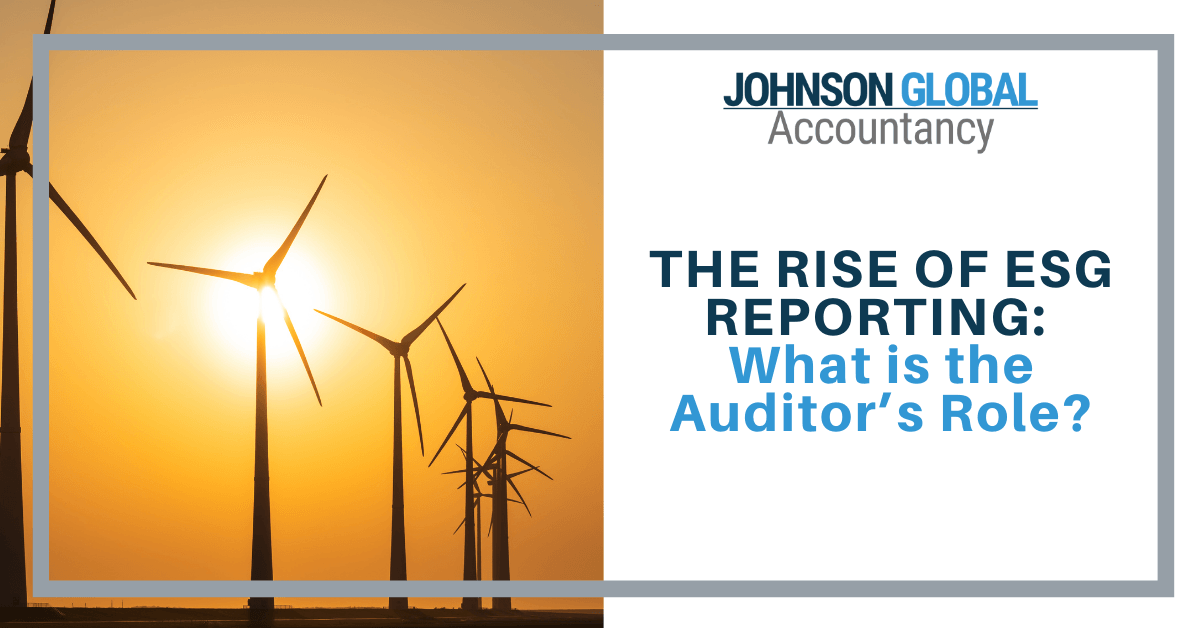
The Rise of ESG
Environmental, social, and governance (ESG) considerations have been around in various forms going back decades. However, only in recent years has ESG reporting become an area of growing interest for a wide range of financial statement users and stakeholders – including investors, accountants, credit rating agencies, lenders, regulators, among many others.
So why is ESG the hottest topic in public company disclosure?
One of the reasons is that ESG-related concerns matter to an ever-broadening population of stakeholders, including millennials and iGens 1 . Many socio-economic factors are considered extremely important to these groups – protecting the environment, concerns over climate change, poverty, appreciation of the need for diversity based on race, gender, and sexual orientation…the list goes on. This expanding base has (and will continue to have) a lot of influence and make their purchasing / consumption / investing decisions based on ESG considerations. A company that exhibits a focus on protecting the climate is generally going to have a better chance of earning their business rather than a company who has no appreciation for what matters to this base.
Accounting regulations that currently apply to ESG reporting
From an accounting point of view, there are a variety of reporting frameworks in place that public companies currently use to present their ESG information. However, these frameworks are not broadly adopted, nor do they always use consistent metrics and disclosures. Many large asset managers are calling on companies to use standards set by bodies such as the Task Force on Climate-Related Financial Disclosures and the Sustainability Accounting Standards Board. In March 2021, the FASB published a staff educational paper to provide stakeholders with an overview of how ESG reporting intersects with existing financial accounting standards. While the educational paper is not formalized guidance, it provides some illustrative examples where the accounting profession, based on current standards, should be considering ESG when it is preparing its public reports. Examples provided by the educational paper include:
- Going Concern – When performing its going concern determination, management may need to consider the effects of environmental matters (e.g. related to newly enacted emissions regulations) that may be material to an entity to meet its financial obligations and thus could affect its going concern assumption.
- Inventory – In determining the net realizable value of inventory, management will need to consider factors like regulatory changes that make inventory obsolete or perhaps a significant climate event that causes physical damage to an entity’s inventory.
Due to the variety of approaches/frameworks out there, none more generally accepted or popular than others, making ESG comparisons between companies can be very difficult for stakeholders, even in the same industry.
Current responsibilities of auditors
When issuers include ESG reporting in documents that are part of audited financial statements (i.e. an ESG attestation report is included as an addendum or part of a Form 10-K filing), auditors should consider the requirements of PCAOB Auditing Standard (“AS”) 2710, Other Information in Documents Containing Audited Financial Statements. AS 2710 lays out an auditor’s requirements for other information that is included in a document such as a Form 10-K or annual report. Although an auditor’s responsibility does not extend beyond the financial information identified in the auditor’s report, AS 2710 requires that the auditor read the other information, including ESG information, and consider whether this information, or its presentation is materially inconsistent with the information or disclosures in the financial statements. The Center for Audit Quality has acknowledged in reported articles that a material misstatement of fact is a fairly high bar and, given the nature of ESG information, it will probably be highly unlikely that an auditor would be aware of a misstatement of fact seeing that this information is outside the scope of its audits of an issuer’s financial statements and internal control over financial reporting. In cases where ESG information is not included in financial information that includes the issuer’s audited financial statements, the auditor has even less responsibility.
Future responsibility of auditors
Many of the qualitative disclosures and metrics used in ESG reporting that were mentioned above are not governed by any established framework (unlike GAAP for accounting or COSO for ICFR, etc.). I expect that stakeholders will at some point require ESG reporting to be subject to the same level of rigor under a uniform framework that would ensure consistency of application and that the information underlying the ESG reporting is accurate and appropriately applied.
Although the reporting of ESG information presents a challenge to companies, auditors have the perfect opportunity to transfer some of their accountability, impartiality, and standards-based analysis to perform oversight over ESG reporting. Public company auditors already have a base skillset and a place in the financial market system to lead stakeholders in this area:
- Auditors adhere to strict ethics and independence standards and require their professionals to maintain continuing professional education.
- Auditors have experience understanding and interpreting frameworks and adapting to changes happening around them.
- Auditors have experience working with organized teams of professionals who have access to knowledge and expertise from sources internal or outside the firm, including subject matter resources.
- Auditors have familiarity working with specialists when extensive experience is required that they do not have internally.
- Last but not least, auditors have experience in compliance reporting engagements and executing their work within a system of quality control.
The press has reported that auditors are already using their skills to provide assurance over ESG information. Many of the leading companies in the United States (Coca Cola, Nike, and Starbucks for example) are already engaging auditors to evaluate their ESG reports to be able to provide some reliability of these reports to stakeholders. In fact, the CAQ reported that auditors already provide independent assurance for more than ten percent of S&P 100 companies’ ESG reports. This trend will grow as investors and other stakeholders increasingly look to public companies to disclose their ESG metrics and expect independent auditors to validate those disclosures. A company’s objectives when presenting its ESG information will affect the scope and level of assurance they seek from their auditor. The types of services may include:
- Examination – the auditor provides an independent opinion as to whether the ESG information is reported in accordance with certain agreed-upon criteria. This type of service is considered the closest equivalent to the reasonable assurance statement made by an auditor in a typical audit.
- Review – the auditor expresses a conclusion whether material modifications should be made to the ESG information so that it is reported in accordance with agreed-upon criteria. Review engagements are less in scope than an examination engagement and provides limited assurance.
What the road ahead looks like
There are various U.S. regulators, and reporting bodies, and stakeholder groups that are expected to step into the fray to help determine ESG reporting guidance – the CAQ, the SEC, the PCAOB, and the AICPA. From an accounting perspective, SEC Chair Gensler’s recent remarks make consideration of ESG reporting a clear priority of the SEC. As the SEC oversees the PCAOB, the SEC will probably require the PCAOB to explore providing guidance to auditors to assist them:
- As they consider ESG when performing their financial statement and ICFR audits, and
- when they are called upon to report specifically on a company’s ESG disclosures.
Prior to his departure from the PCAOB, Board member J. Robert Brown was considered the most outspoken proponent (probably the only vocal proponent) of ESG reporting out of the then PCAOB Board members. Currently there are only three Board members appointed at the PCAOB and the SEC has announced that their seats will be coming vacant soon. Dan Goelzer (ex- PCAOB Board member and acting chairman) discussed during a July 2021 Bloomberg Tax podcast that the process of vetting and appointing all five new Board members at the same time could be a major hurdle that delays the PCAOB’s progress on broadening the scope of reporting of ESG indicators. My expectation is that the three remaining Board members would probably leave this hot potato for a future, five-person Board to tackle.
The PCAOB should be taking a prominent lead to define the role auditors can play to make investors confident over ESG-related information. There are many ESG considerations that need to be evaluated – as an example, could materiality (defined as that which would impact an investor’s decision) take on a different form in the future? The SEC thinks so.
Already the PCAOB is falling behind as the IAASB has issued its quality control standards in 2020 and the AICPA has issued its own QC exposure draft for comment. I hope the PCAOB and the SEC will lead the charge of such an important initiative. Auditors should continue to take a lead role in driving the regulators to reach this end goal. Stakeholders want to rely on what companies report and disclose through a formalized framework applied by companies and subject to consistent procedures performed by their auditors. With different frameworks out there, different interpretations of such frameworks, and different levels of services provided by auditors, it is almost impossible for stakeholders to make informed and reliable decisions.
Geoff Dingle, JGA Managing Director, works with PCAOB-registered accounting firms helping them identify, develop, and implement opportunities to improve audit quality. With over 20 years of public accounting experience, he spent nearly half of his career at the PCAOB where he conducted inspections of audits and quality control. Geoff has extensive experience in audits of ICFR and firms’ systems of quality controls. Prior to the PCAOB, he worked on audits in various industries at Deloitte in Atlanta and Durban (South Africa).
1 People born approximately between 1995 and 2012 who have been exposed to technology and the 1990’s web revolution and thus have had access to information on the internet their whole lives.
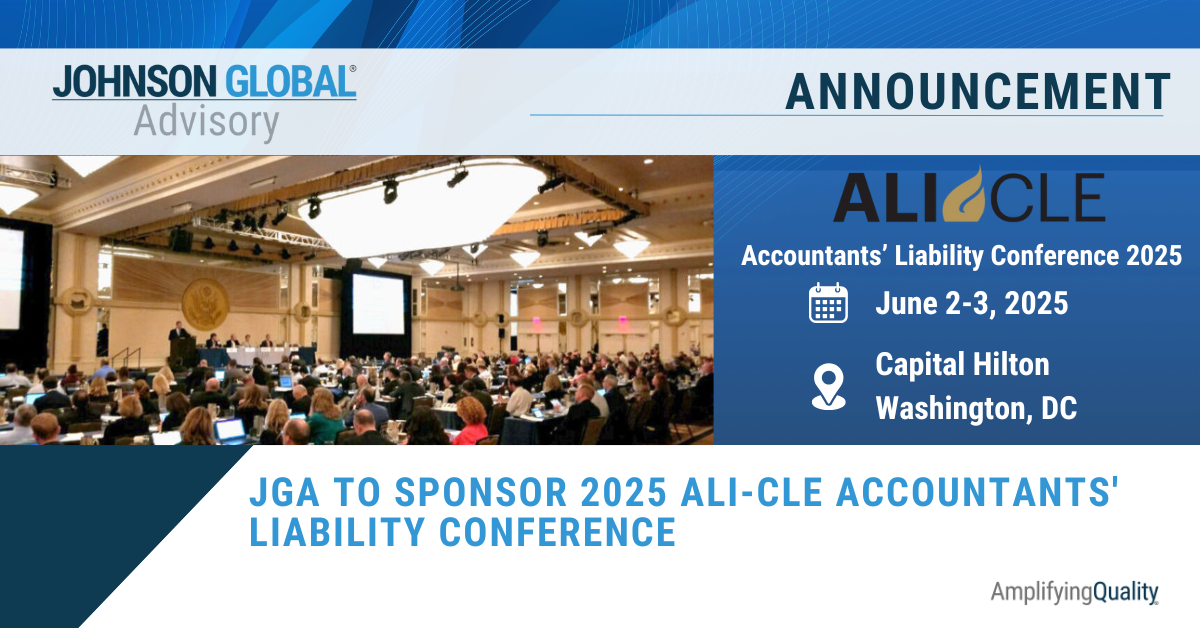

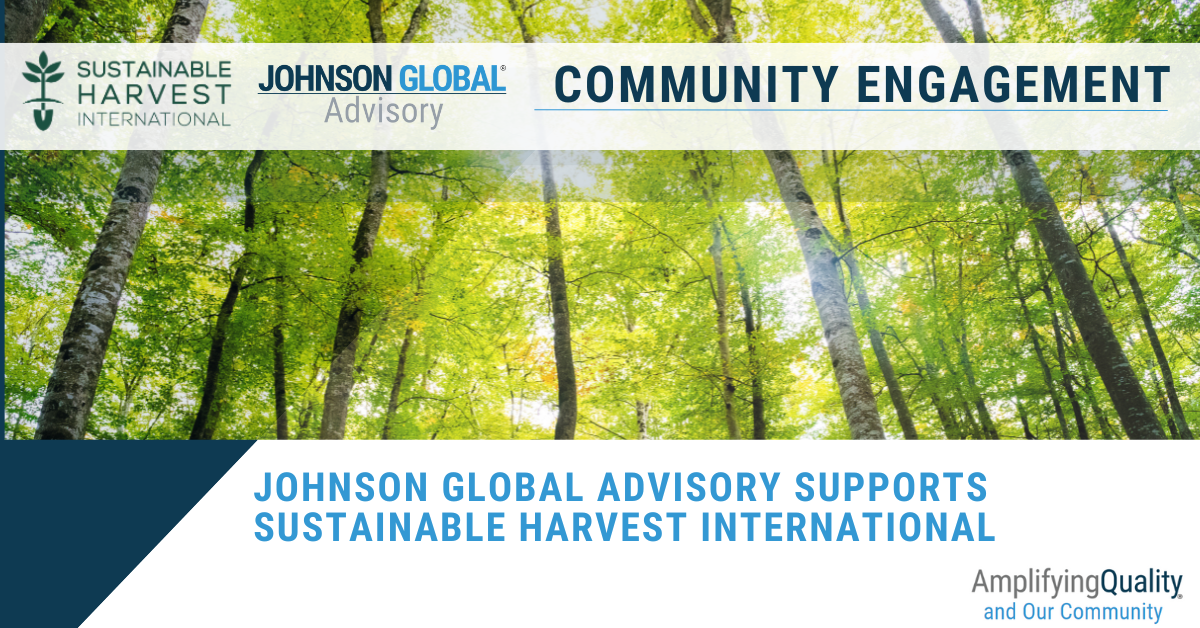
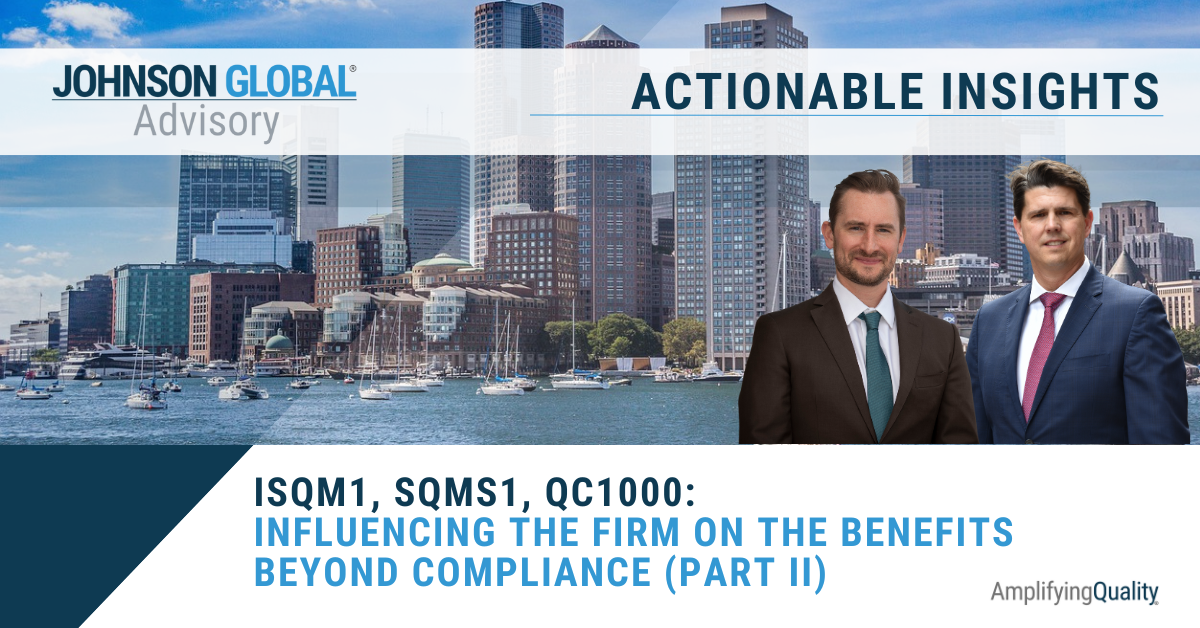
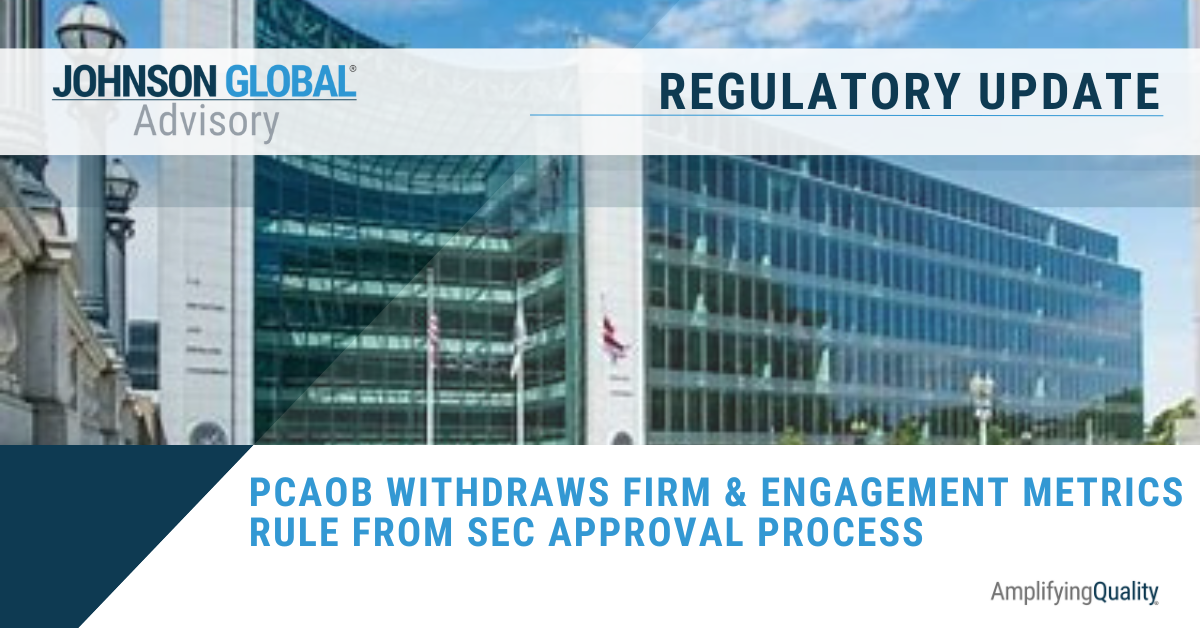
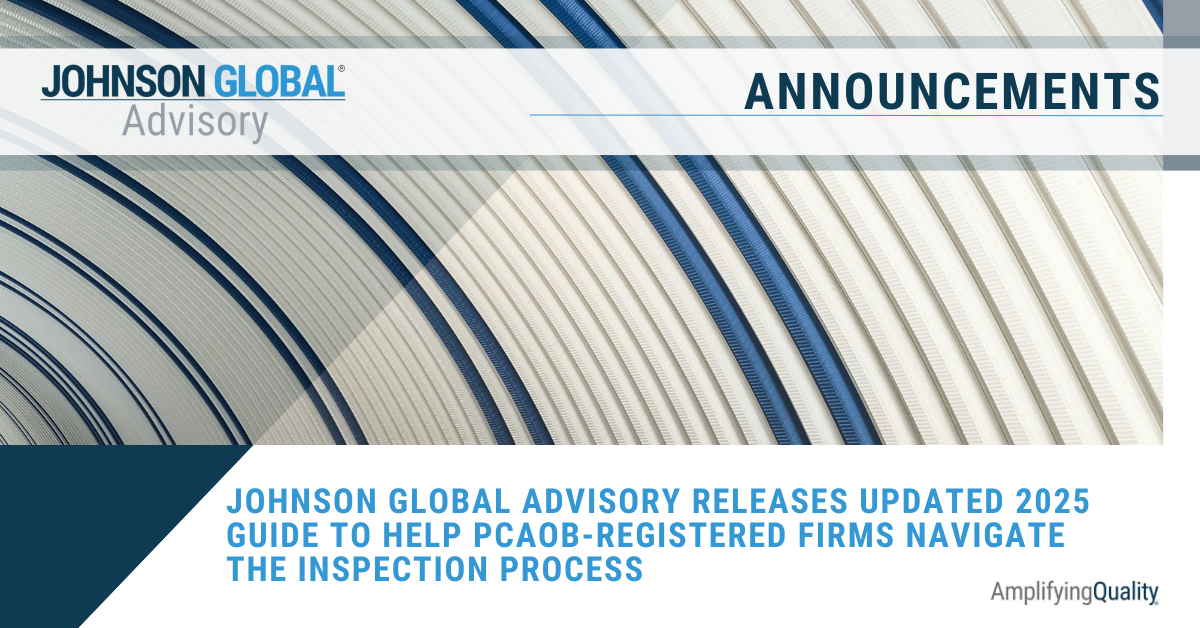

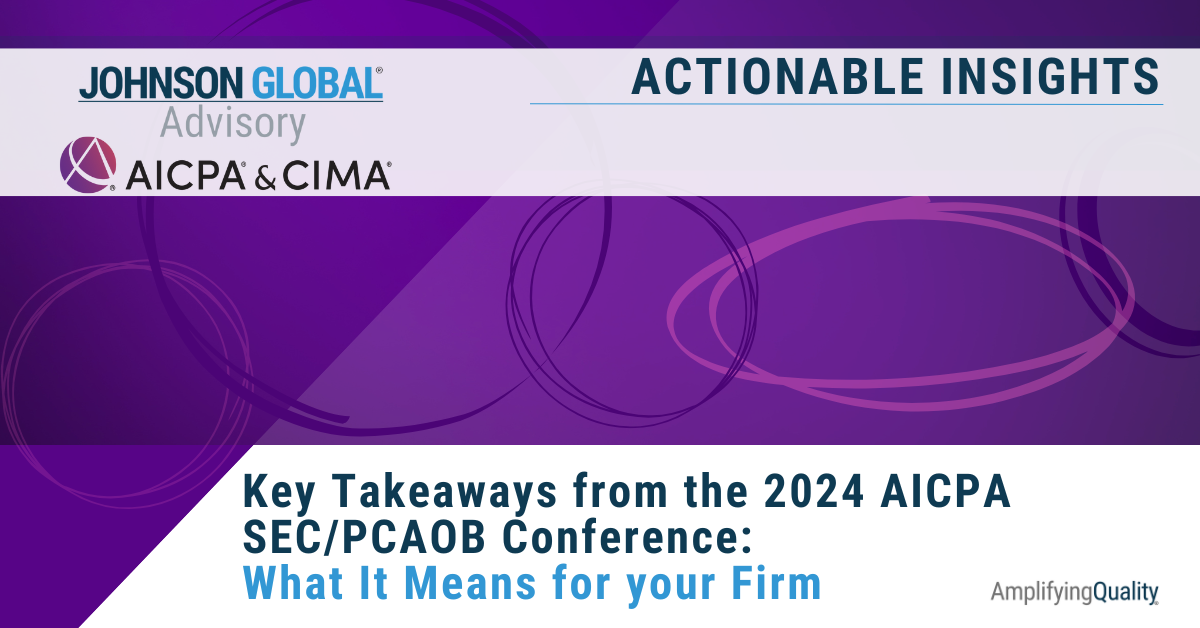
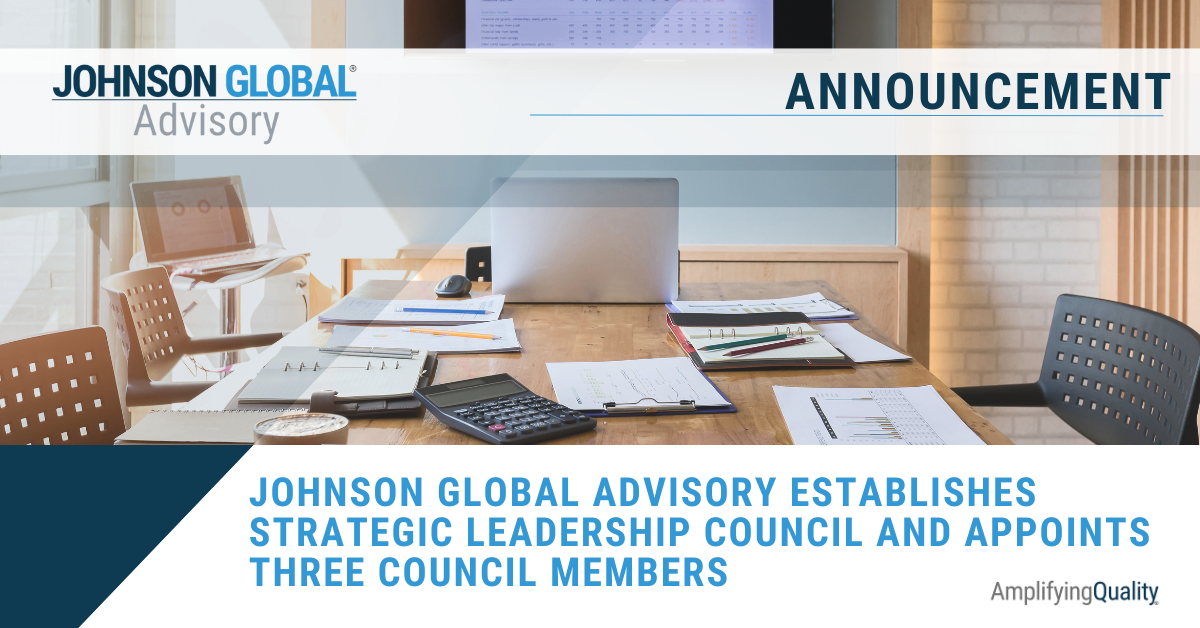

Johnson Global Advisory
1717 K Street NW, Suite 902
Washington, D.C. 20006
USA
+1 (702) 848-7084
